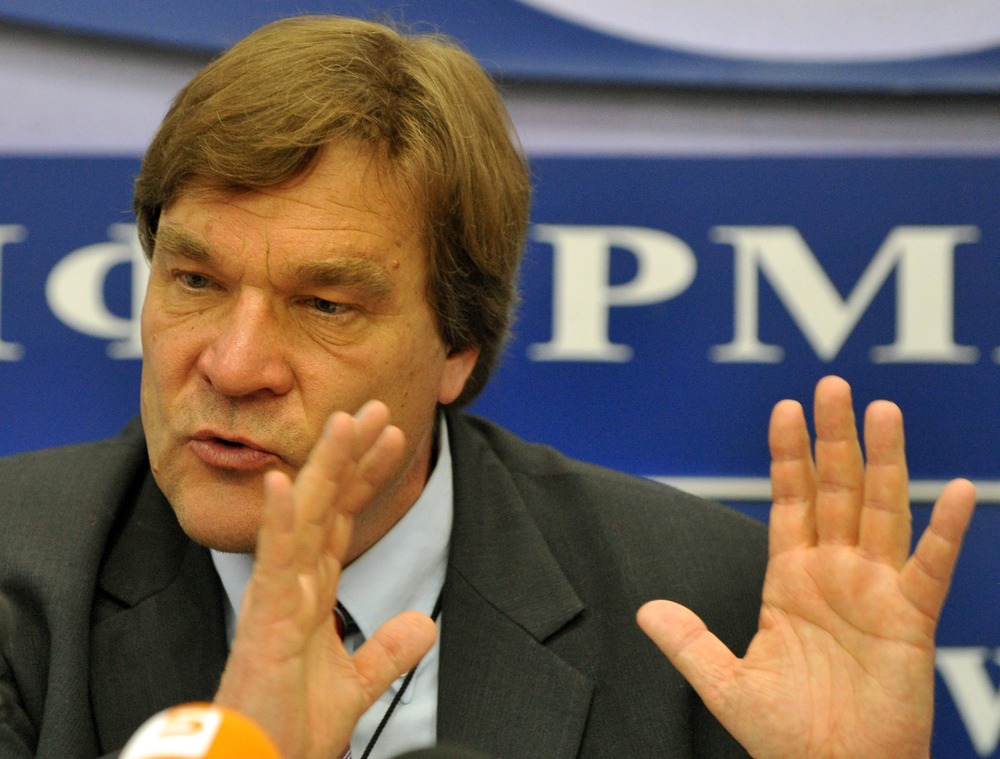
Kiljunen’s Report Blasted in Kyrgyzstan
Publication: Eurasia Daily Monitor Volume: 8 Issue: 92
By:

One week after the publication of the Kyrgyzstan Inquiry Commission’s (KIC) report detailing its investigation into the ethnic violence in southern Kyrgyzstan, widespread discussion has been triggered in the country. Most local experts agree that the report adds more to understanding the causes and consequences of the four-day bloodshed in June 2010, which cost the lives of 470 and forced 400,000 citizens to flee the country. The report, however, has been criticized for its methodology, one-sidedness, and factual inaccuracies.
The KIC’s findings contradict some of the conclusions made by Kyrgyzstan’s National Commission earlier this year (EDM January 26). Specifically, the KIC report refrained from blaming members of the ethnic Uzbek community for starting the violence. KIC also highlights Kyrgyzstan’s military and government officials’ failure to foresee the violence and prevent the illegal capture of its ammunition by the conflicting parties (www.akipress.kg, May 2).
Consequently, the report has divided Kyrgyzstan’s expert community. Some believe that the international community continues to turn a blind eye to the role of nationalism among ethnic Uzbeks in stirring up the conflict, while others argue that former members of the government have to admit their failure in preventing the violence. “KIC is silent or describes vaguely the facts about the killings of ethnic Kyrgyz and public officials, who were killed while on duty,” states the parliamentary committee on defense and security led by General Ismail Isakov. According to the statement, the KIC presents some killings in a “rational” way, while other crimes are described “emotionally.” The statement’s overall conclusion is that the KIC is not conducive to forming interethnic peace. Members of the military top brass were also very critical of the National Committee report. During the conflict Isakov served as the interim Defense Minister.
By contrast, human rights activists such as Aziza Abdirasulova underscore the KIC’s finding, which suggests the interim government was informed about the brewing ethnic tensions in southern Kyrgyzstan, but failed to act in a timely manner, thus allowing the mass violence to unravel. She also points to the continuing injustice vis-à-vis the ethnic Uzbek minority: “There were more victims among the Uzbek nationality, but more convicts among them, too” (www.fergana.ru, May 11).
The KIC was accused of trying to instigate further conflict by suggesting granting a special status to the Uzbek language in southern Kyrgyzstan. It is the beginning of state collapse according to Kyrgyz political scientist Mars Sariyev (Carnegie Center discussion, May 10). In Sariyev’s view, greater language rights will inevitably lead to increased cultural autonomy and the minority’s wish for political independence.
To date, however, none of the investigations have led to a broader discussion of what type of nation-building strategy Kyrgyzstan should adopt. Instead, one of the main points of discontent stemmed from the KIC’s recommendation to restore the name “Republic of Kyrgyzstan” to replace the current “Kyrgyz Republic.” This change would help the state build civic-based national identity, the report argues. For some in Kyrgyzstan the suggestion was offensive, as if the international community is seeking to intervene in the country’s internal affairs. “A Finnish man came to teach us how to name our country,” one young user of Twitter wrote, referring to the Special Representative for Central Asia at the OSCE Parliamentary Assembly and head of the KIC Kimmo Kiljunen.
The KIC’s conclusions prompted even the controversial Osh Mayor to publicly share his views. “If members of the International Commission really wanted the Kyrgyz Republic as an independent state to pursue an independent ethnic policy, by no means would it label me as a ‘nationalist,’” Melis Myrzakhmatov explained, rebutting the KIC’s criticism of his subversive actions during the conflict (www.ca-news.org, May 11).
Although criticizing the report’s findings, both government officials and experts acknowledge the KIC’s impact on the overall discussion of the conflict. Experts agree that the report adds yet more knowledge to a complex phenomenon. Gulsara Aliyev, head of the Research Center at the State National Security Committee of Kyrgyzstan, said that although the report contains some factual inaccuracies it will be useful (Carnegie Center discussion, May 10). Some experts argue that the report’s findings will most certainly be used by competing presidential candidates this year. “Ethno-entrepreneurs,” as Elmira Nogoibayeva from the “Polis-Asia” think-tank characterizes them, will exploit the seeming imbalances in mobilizing crowds around an individual’s candidacy (Carnegie Center discussion, May 10).
Importantly, the discussions of the report also isolated some of the common myths perpetuated by government officials about the roots of the ethnic violence. Among these is the myth that argues the conflict was carefully planned by “third forces.”




